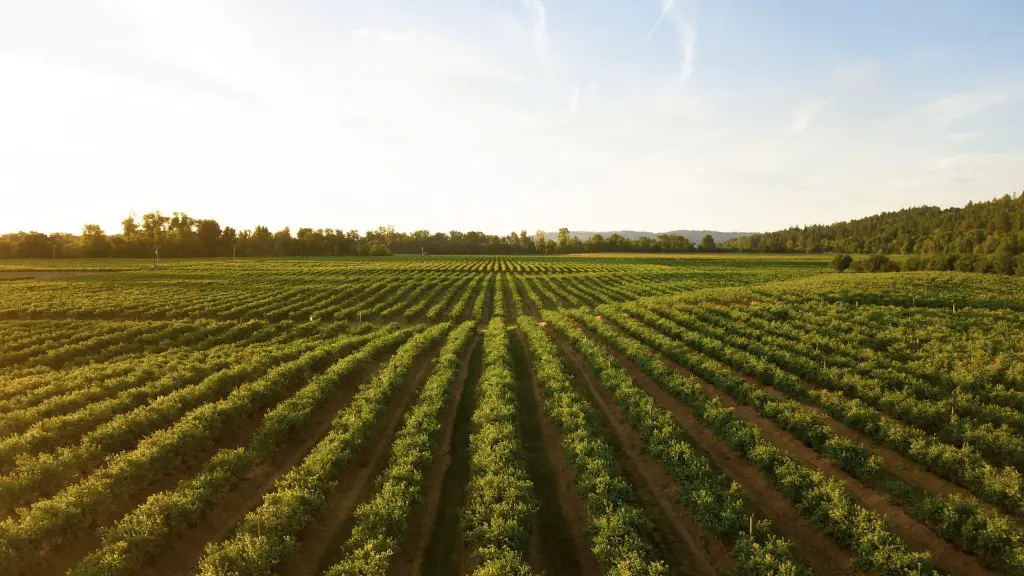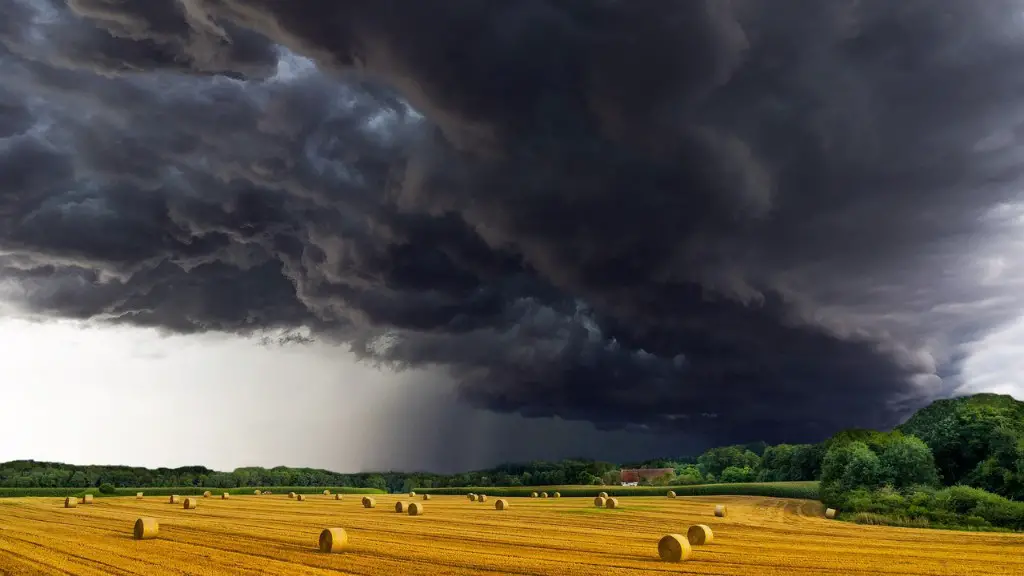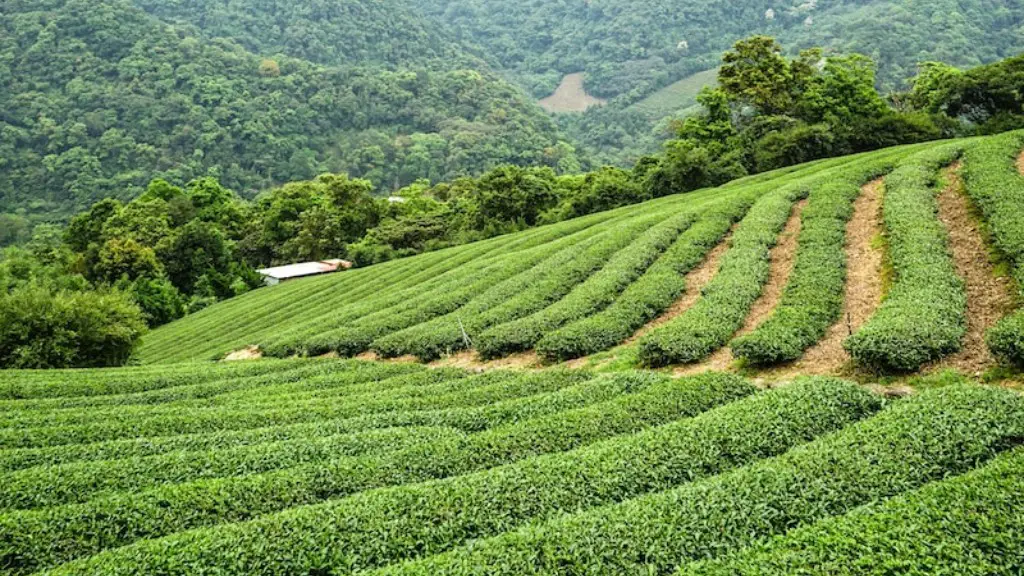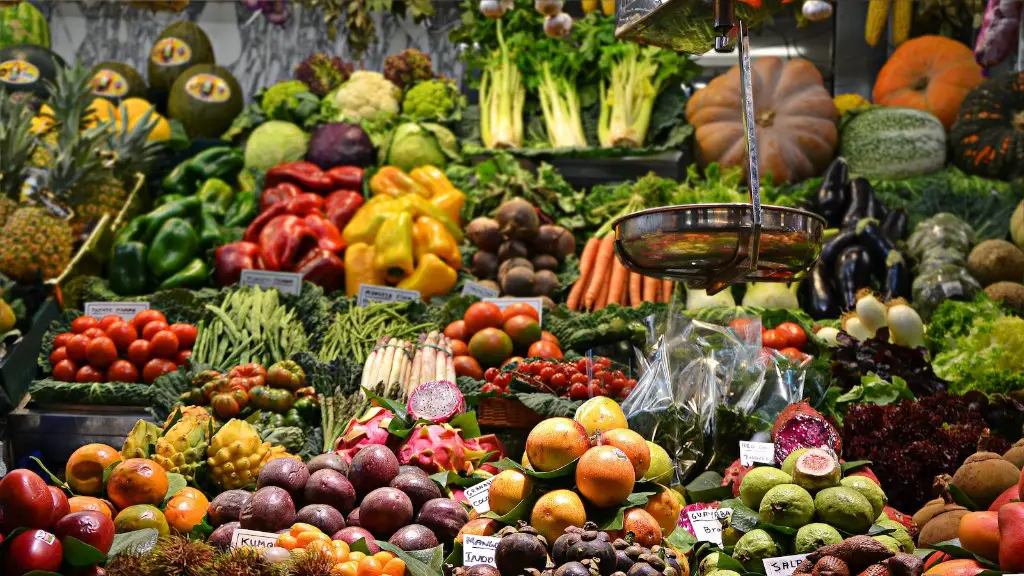Climate change is one of the major challenges facing agriculture in South Africa. The country is highly vulnerable to the effects of climate change, due to its high dependency on agriculture and limited adaptive capacity. Climate change is expected to have a number of impacts on agriculture in South Africa, including on crop production, water availability, and livestock health. These impacts are likely to lead to increased costs for farmers, and reduced incomes and employment. In addition, climate change is expected to exacerbate existing problems such as land degradation and soil erosion.
Climate change is one of the many risks facing South African agriculture. The sector is highly vulnerable to changes in climate as a result of its dependence on favourable weather conditions for successful crop production.
Climate change is predicted to result in more extreme weather events, such as droughts and floods, which could have devastating consequences for South African agriculture. In addition, rising temperatures and changes in rainfall patterns are expected to impact crop yields, with a potential reduction in production of up to 30% by 2030.
The impact of climate change on agriculture is of particular concern in South Africa, as the sector is a major contributor to the country’s economy, accounting for approximately 10% of GDP. agriculture is also an important source of employment, with around 1.4 million people employed in the sector.
Given the potential impacts of climate change, it is essential that the sector is well prepared to adapt to the changing conditions. The South African government has been working to develop a number of initiatives to support the agriculture sector in its efforts to adapt to climate change. These include the establishment of the National Climate Change Response White Paper, which sets out a plan for how the country will respond to climate change, as well as the launch of the National Drought Management Strategy.
How does climate change affect our agriculture?
The potential impacts of global warming are far-reaching and potentially devastating. One of the most significant potential impacts is on our food supply. As temperatures rise, crop yields are expected to decline, both in terms of quantity and quality. This could lead to widespread hunger and malnutrition, as well as increased prices for food. In addition, pests and diseases are likely to proliferate in a warmer climate, further reducing crop yields. This could have a devastating impact on both developed and developing countries.
It is clear that rising temperatures will have a negative impact on many of the crops that are staples in African diets. With yields expected to decrease by up to 20%, it is clear that action must be taken in order to protect these crops. This may include developing new strains of crops that are more resistant to higher temperatures, as well as working to improve irrigation and other agricultural practices.
What are 5 negative effects of global warming on agricultural production in South Africa
Climate change is a major challenge for agriculture in South Africa. The sector is highly vulnerable to changes in temperature and rainfall patterns. Higher temperatures and reduced rainfall will lead to lower crop yields, while increased evaporation rates will lead to water shortages. Pests and diseases are also likely to become more prevalent, and their distribution ranges are likely to shift. This will have a major impact on food security in South Africa.
Climate change is one of the most pressing issues facing South Africa today. The country is already seeing the effects of climate change, including an increase in temperatures, rise in sea water levels, and floods. Climate change is expected to continue to pose a significant threat to the country’s GDP, as it affects crop production and livestock farming. This, in turn, will affect the country’s exports. South Africa needs to take action to mitigate the effects of climate change and adapt to a changing climate.
Where does climate change affect agriculture the most?
Climate change is already impacting farmers in the United States. Flooding is becoming more common in agricultural regions, as increased precipitation and sea level rise combine to cause more extreme flooding events. This flooding can damage crops, damage farm infrastructure, and disrupt farming operations. As climate change continues, farmers will need to adapt their practices to deal with more extreme weather events.
Climate change is already having a significant impact on rural communities around the world. As temperatures rise and weather patterns become more extreme, these communities are facing a range of challenges, from water shortages to soil erosion to the loss of traditional livelihoods.
In many cases, these effects are exacerbated by poverty and lack of access to resources. This means that rural communities are often the most vulnerable to the impacts of climate change.
There is an urgent need to address these issues and to support rural communities in adapting to the changing climate. This will require a concerted effort from governments, NGOs and the private sector. Only by working together can we hope to mitigate the worst impacts of climate change and build a more resilient future for all.
Why is African agriculture the most vulnerable to the impact of climate change?
Africa is highly vulnerable to climate change for a number of reasons. Firstly, the continent is heavily reliant on climate-sensitive activities and products for its economy, meaning that any changes to the climate can have a profound impact. Secondly, Africa has a low adaptive capacity, meaning that it is less able to cope with and adapt to changes in the climate. This is linked to factors such as weak economies, weak institutions and poorly developed governance structures. All of these factors combine to make Africa particularly vulnerable to climate change and its impacts.
Climate change is having a major impact on agriculture in Africa. Crop yields are becoming more unpredictable, which is causing disruptions in food production and leading to increased migration. Governments, regional decision makers, and international organizations are all concerned about the implications of climate change on Africa’s agriculture sector.
What are the challenges of agriculture in South Africa
Small-scale and emerging commercial agriculture businesses often face common constraints that can impede success. Access to finance can be a major challenge, as can issues related to land governance in communal areas. Furthermore, businesses may lack access to water or need effective extension services in order to be successful. Poor infrastructure, such as inadequate roads, electricity, or market access, can also be a hindrance to success.
Climate change could have a number of impacts on the labor market in South Africa. For example, rising temperatures might lead to reduced productivity and availability of labor, costing the country up to 11% of GDP per capita by the end of the century. However, with the right policies in place, climate change could also lead to reduced gender pay gaps in rural communities.
What are the problems of climate change in South Africa?
South Africa is facing a number of climate-related challenges. In the past several decades, minimum and maximum temperatures have become both more frequent and extreme. The country’s extensive coastline is impacted by heavy waves and storm surges, as well as rapid urbanization. South Africa’s most significant climate vulnerabilities stem from water availability challenges.
Water availability is a major issue in South Africa, as the country experiences frequent droughts. These droughts have a significant impact on agriculture, which is a major part of the country’s economy. In addition, the droughts can lead to water shortages and increased competition for water resources.
The country is also vulnerable to wildfires, which are becoming more common and more severe due to the changing climate. The wildland-urban interface is increasing, which means that there are more people living in areas that are at risk of wildfires. In addition, the length of the wildfire season is increasing, which puts even more people and property at risk.
Finally, South Africa is also facing challenges related to sea level rise. The country has a long coastline, and as sea levels rise, the risk of flooding and coastal erosion increases. This is a significant concern for the country, as it could impact infrastructure, homes, and
There are many constraints to successful small-scale and emerging commercial agriculture. One of the biggest constraints is lack of access to finance. This can be a challenge for farmers who want to expand their operations or invest in new technology.Other common constraints include challenges regarding land governance in the communal areas, access to water, the need for effective extension services, and poor infrastructure, such as roads, electricity and access to markets. All of these constraints can make it difficult for small-scale and emerging commercial agriculture to be successful.
What are the 6 major threats to food security in South Africa
There are many threats to food security, but the main ones are world population growth, the increase demand for food, food price, the disappearance of the variety of agricultural plant species, and the increase in the area of scarcity water and the limitation of the availability of land. All of these factors lead to less food available per person, which makes it hard for people to get the food they need to survive and thrive. In addition, food losses and food waste also contribute to food insecurity, as they further reduce the amount of food available.
The four cities mentioned in the report are at risk of flooding due to climate change. The effects of climate change are already being felt in South Africa and the situation is only going to get worse. The report highlights the need for action to be taken to mitigate the effects of climate change and adapt to the changing environment.
Which sectors are affected by climate change in South Africa?
Natural resources and primary sectors are the most impacted by climate change, while the economic losses are more than the gains in almost all municipalities in South Africa. This has a significant bearing on sustainable poverty reduction in South Africa through pro-poor industrialisation.
It is now well established that human activities are the dominant cause of the observed climate changes over the last century or so. The principle causes are the global burning of fossil fuels and the transformation of the global land surface from natural vegetation to croplands, pastures and human settlements. Together, these two effects account for around three-quarters of the total increase in greenhouse gases in the atmosphere since the start of the industrial era.
Is climate change a major driver of agricultural shifts in Africa
Climate change is a major threat to the agricultural productivity growth in Africa. The increased temperature has contributed to a 34 per cent reduction in agricultural productivity growth in Africa since 1961. Climate-related hazards are a major driver of new displacement in Africa.
African farmers face many challenges, including climate change, limited access to markets, and limited access to resources. Many African farmers are small-scale farmers who rely on rain-fed agriculture, which makes them particularly vulnerable to changes in the weather. In central Tanzania, for example, the rainy season typically lasts from November to April, after which the weather becomes too dry to support growing crops. This means that farmers must be able to store enough food to last them through the dry season. Limited access to markets can also make it difficult for farmers to sell their crops, and they may not have access to the resources they need to improve their farms.
Final Words
Climate change will have a range of impacts on agriculture in South Africa. These will include changes in crop yields, water availability, pest and disease pressures, and the costs of inputs. In some cases, these impacts will be positive, for example a longer growing season. However, on balance, climate change is likely to result in declining crop yields and increased water stress. This will have knock-on effects on food security, farm incomes, and rural livelihoods.
Climate change has a significant effect on agriculture in South Africa. The country has experienced an increase in temperatures over the past few decades, which has led to a decline in crop yields. In addition, the changing climate has caused an increase in pests and diseases, which has further contributed to the decline in crop yields. The impact of climate change on agriculture in South Africa is likely to continue in the future, and it is likely to have a negative impact on the country’s food security.





